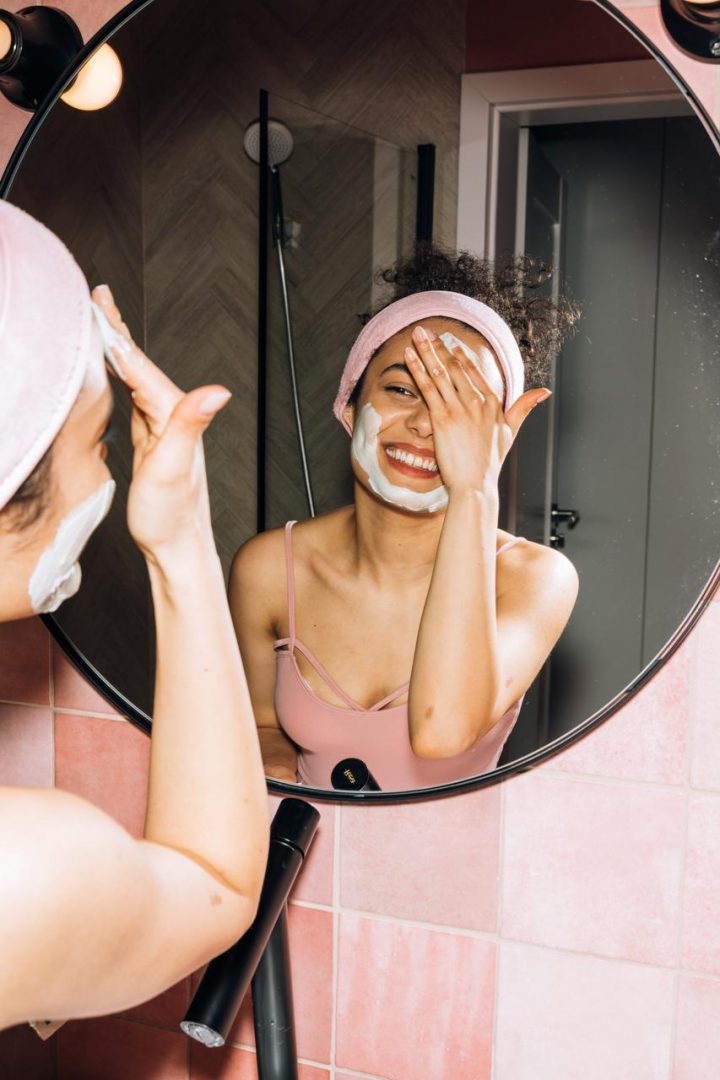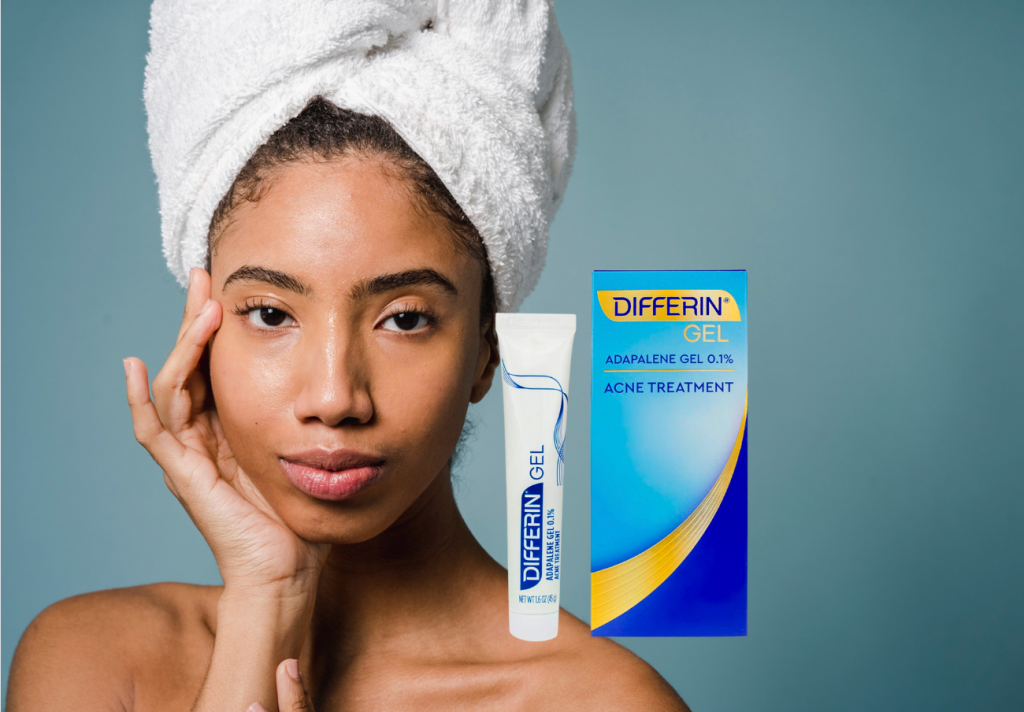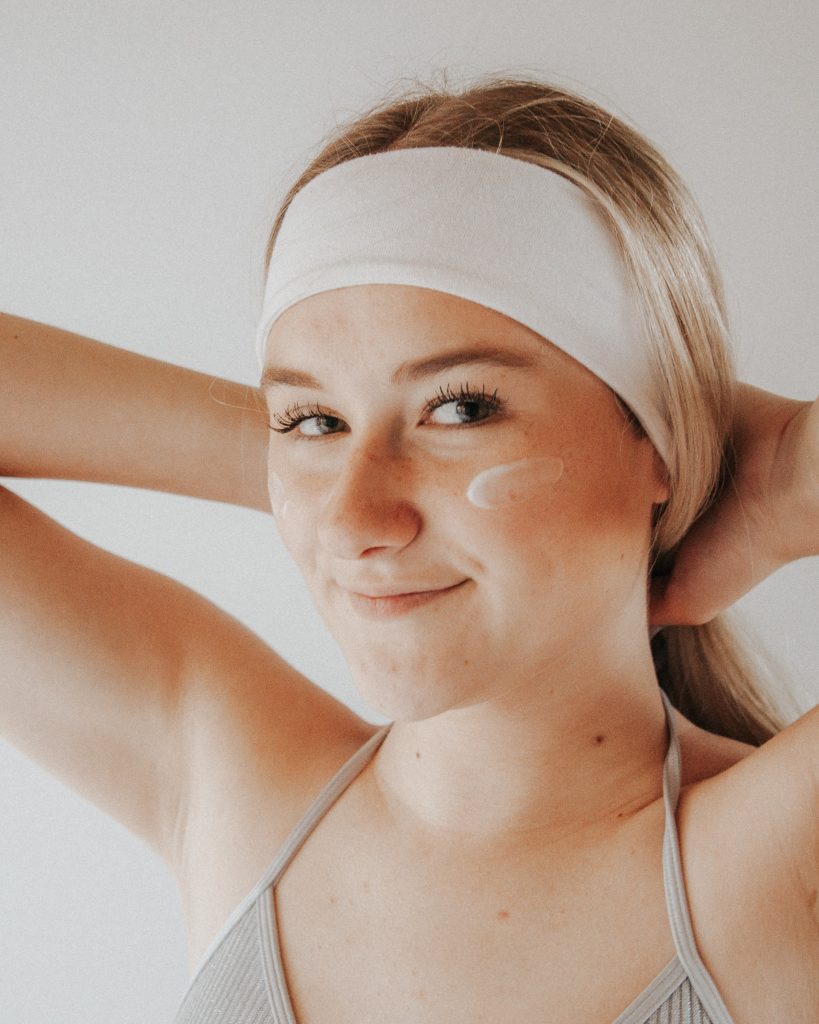If you’re a proponent of skincare routines and beauty regimes, you’ve likely come across people debating whether vitamin C and niacinamide moisturizers can make your skin glow. Since each ingredient boasts many impressive benefits, it’s no surprise the answers are mostly positive.
But if you’ve read articles on “not using vitamin C and niacinamide together,” you might wonder whether the two formulas are frenemies.
Here’s the good news: you can use a vitamin C cleanser and moisturizer containing niacinamide. But you have to ensure both formulas are in low concentration.
Below, we discuss the benefits of each ingredient and how you can incorporate the two into your skincare routine:
But if you’ve read articles on “not using vitamin C and niacinamide together,” you might wonder whether the two formulas are frenemies.
Here’s the good news: you can use a vitamin C cleanser and moisturizer containing niacinamide. But you have to ensure both formulas are in low concentration.
Below, we discuss the benefits of each ingredient and how you can incorporate the two into your skincare routine:
A Quick Glance at Can I Use Vitamin C with a Niacinamide Cleanser and Moisturizer
Vitamin C and Niacinamide are becoming increasingly popular in the beauty community as more people add them to their skincare routines.
Why? Because the two offer innumerable benefits, from reducing inflammation to helping your face glow. The best part? You can incorporate vitamin C and niacinamide in your daily routine to renew and repair your skin.
Since these ingredients have a similar effect on your skin, it doesn’t matter how you layer them. What’s worth noting is the formulation of the products you use. Experts agree that using a serum is better because it contains nutrients.
Vitamin C and Niancimide will Trigger Hideous Inflammation: Where Does the Myth Come From?
Wondering why some people believe combining vitamin C and niacinamide is unsafe for your skin?
Older studies reveal that mixing vitamin C, specifically ascorbic acid, with pure forms of Niacinamide at high temperatures can cause it to convert into niacin. The end product can cause flushing, skin irritation, and blotchy patches.
Since we’re likely to store and use our skin products at room temperature, there’s no risk of forming the compound niacin. Moreover, the old study used unstabilized forms of both ingredients- something you won’t find in your favorite beauty care products.
However, if you still have doubts or have sensitive skin, consider reaching out to a dermatologist.
What are the Benefits of Using Vitamin C and Moisturizer Containing Niacinamide
Now that we’ve covered you can combine vitamin C with niacinamide, let’s discuss why you should do it:
Pros of Vitamin C
Here are the benefits of using this powerful antioxidant:
- Makes Your Face Glow- Vitamin C is a fantastic solution to all your hyperpigmentation problems! Not only does it help combat dullness, but it also reduces darker patches on your skin and brightens it up
- Offers Pro-Aging Support- Vitamin C helps boost collagen production, which helps reduce fine lines, crowfeet, and wrinkles and makes it look younger.
- Combats Inflammation- The antioxidant can help combat blotchy, inflamed patches on your skin and redness. Consequently, it improves your complexion and creates clear skin.
- Reduces the Appearance of Scars- Vitamin C is critical for accelerating wound healing. Therefore, it can help fade acne scars and other skin damage
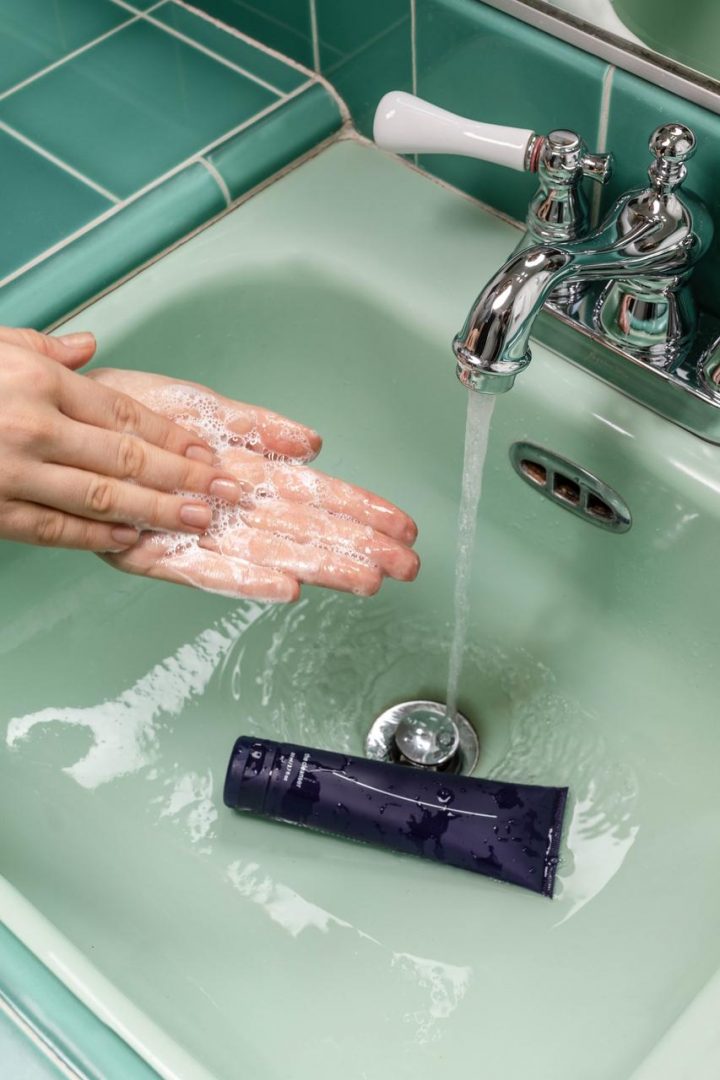
- Protects Against Sun Damage- Exposure to excessive amounts of oxidant stress via UV radiations and pollutants can lead to the depletion of vitamin C levels. Introducing vitamin C-rich products in your beauty care routine can combat oxidative stress and make you look stunning.
Now that we’ve covered you can combine Vitamin C with niacinamide, let’s discuss why you should do it:
Pros of Niacinamide Moisturizer
Niacinamide also provides your skin with several skin benefits, including:
- Reduces Hyperpigmentation- Like vitamin C, niacinamide can also even out your skin tone and make it look smoother by reducing hyperpigmentation and inflammation.
- Prevents Skin Sagging- Niacinamide can improve the firmness and elasticity of your skin by fighting wrinkles, fine lines, and other symptoms of sagging skin.
- Improves Hydration- Niacinamide is a form of vitamin B3. Thus, it helps strengthen your skin barrier and protects it against water loss.
- Reduces Redness on the Face- As an anti-inflammatory drug, it helps treat redness, discoloration, flushing, and soreness.
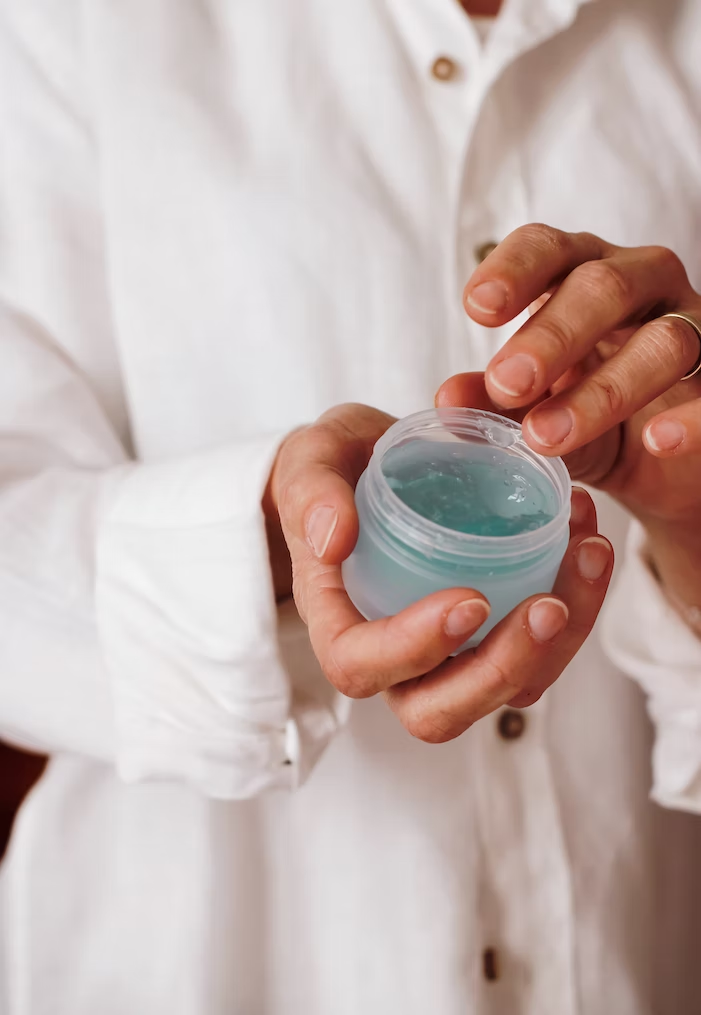
- Combats Acne- Using topical niacinamide can help regulate sebum production, which lowers fewer acne breakouts. Moreover, it can improve redness and swelling.
- Shrink the Appearance of Pores- While you can’t really shrink your pores, topical niacinamide can make them look smaller.
Why They Make Such a Good Team
We’ve discussed that vitamin C and niacinamide offer various benefits, but does that mean the two combined can make your skin glow?
Yes! The multitude of benefits these ingredients offer and their complementary nature make them a powerful combination.
Even though both ingredients target signs of aging and inflammation, they use different mechanisms of action. That means you’re addressing the core issues from various angles, thus helping you achieve your desired result efficiently.
For instance, if your goal is to brighten your skin, layering vitamin C and niacinamide can help you achieve that quickly and effectively. How? Vitamin C inhibits an enzyme that helps reduce the production of pigments, whereas niacinamide prevents the transfer of pigment.
In simpler words, combining these powerful ingredients can help you:
- Ensure a younger, brighter skin
- Reduce the signs and symptoms of skin sagging and aging
- Combat dryness and hyperpigmentation
The Recommended Combination of Vitamin C Cleanser and Niacinamide Moisturizer
Most experts agree that layering vitamin C and niacinamide is preferable. But how do you find the ideal products?
Today, you can find countless vitamin c and niacinamide products, such as moisturizers, eye creams, serums, and essences. But it’s best to pick a low pH vitamin C serum with a neutral niacinamide moisturizer.
You can transform your skincare routine by combining the following vitamin C cleansers with niacinamide moisturizers:
Vitamin C Cleansers to Try
- Yes To’s Grapefruit Vitamin C Glow Boosting Unicorn Transforming Clay Cleanser
- Murad Environmental Shield Essential C Cleanser
- PIXI Vitamin-C Juice Cleanser
These cleansers help promote a healthy, glowing complexion while making it look more beautiful and younger.
Niacinamide Moisturizers to Try
- SkinCeuticals Metacell Renewal B3
- Natrium Niacinamide Gel Cream 5%
- La Roche-Posay Toleriane Double Repair Face Moisturizer UV SPF 30
Niacinamide and vitamin C work with your skin’s natural chemistry to improve its texture and create smooth, clear skin.
Vitamin C and Niacinamide Kits to Try
Make skincare shopping convenient and budget-friendly by purchasing vitamin C and niacinamide kits instead of individual products. Here are our top picks:
- Garnier Vitamin C Serum with Niacinamide and 2 Hyaluron Expert Tissue Masks
- Eva Naturals Vitamin C Serum with Niacinamide, Salicyclic Acid, and Hyaluronic Acid
- Wish Care Vitamin C Pure Glow Kit with Niacinamide and Retinol
- Glow Skincare Kit with 20% Vitamin C Serum, Peptide Complex Serum, Niacinamide Vitamin B3 Serum to Brighten Complexion
Tips to Remember When Using Vitamin C and Niacinamide Altogether
The best way to enjoy maximum vitamin C and niacinamide benefits is by layering them properly. Here are several things to get you started:
If you want to use the two ingredients together, you must ensure they don’t cancel each other out. Here’s a step guide
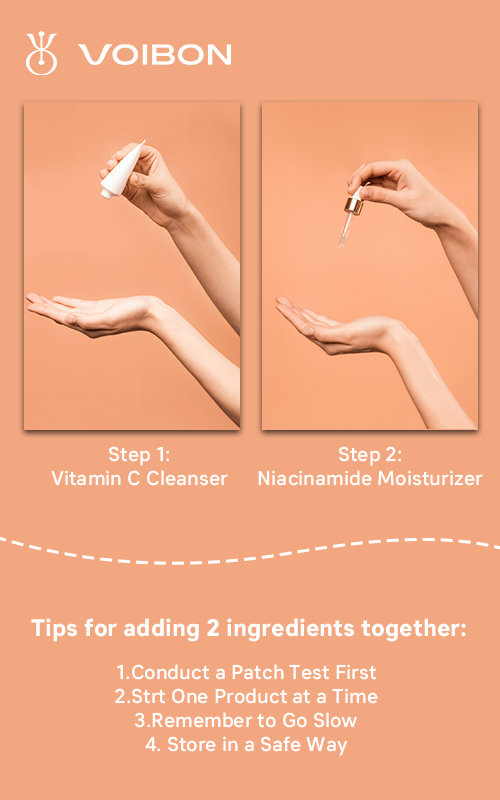
Step # 1: Vitamin C Cleanser
Vitamin C is known to be notoriously unstable. So, you must apply it on clean, dry skin.
Leave vitamin C to sit on your face and allow it to dry. That way, the ascorbic acid gets the chance to settle into your skin, and the two actives don’t cancel each other out.
Step # 2: Niacinamide Moisturizer
Since niacinamide plays nice with every product, you don’t have to stick with a serum. It’s best to choose a niacinamide moisturizer.
Bonus Step: Try Finding a Product with Both Ingredients
You can try finding a product that incorporates vitamin C and niacinamide. Here are a few products you can try:
- Garner Vitamin C Serum for Face with Niacinamide and Salicyclic Acid
- InstaNatural Vitamin C Moisturizer with Niacinamide
Are There Potential Side-Effects of Vitamin C and Niacinamide?
Most people enjoy using niacinamide and vitamin C, but it’s essential to factor in potential side effects before choosing the two ingredients.
Remember these tips when adding vitamin C and niacinamide to your skincare routine:
- Conduct a Patch Test First- Apply a small amount of vitamin C and niacinamide on a small patch of your skin, preferably your arm- to see if redness or irritation occurs
- Start One Product at a Time- Ensure you use vitamin C first and then niacinamide to recognize which product causes redness or inflammation
- Remember to Go Slow- Start using the product a couple of times per week and then work your way up to daily use
- Store in a Safe Way- Read the product labels on your serum, moisturizer, and cleanser to find out how to store them. While most products contain stable vitamin C, excessive exposure to sunlight can trigger inflammation by making it unstable
That way, you can identify whether you’re allergic or sensitive to a particular ingredient. Here are a couple of symptoms to look out for:
- You notice irritation on the area you applied the serum or moisturizer
- You experience discoloration, itching, and stinginess during the patch test
The Bottom Line
Vitamin C and niacinamide are power players in the skincare world since both offer incredible benefits to your skin. Combine these two powerful ingredients to rejuvenate your skin and make it glow.
Remember to layer them correctly so you don’t cancel the ingredients out and patch test. Consider contacting your dermatologist if you have a skin condition or susceptible skin.
Brandi Marcene
Brandi Marcene is a professional copywriter with over 10 years of experience. She has written virtually on every topic and enjoys writing on skincare and beauty. When she’s not writing, you can find Brandi with her dog Maya in Lilburn, Georgia.
LET US KNOW YOUR THOUGHTS

